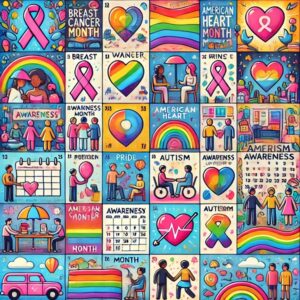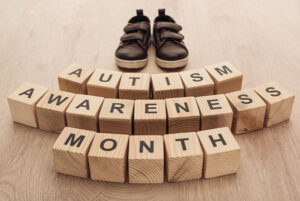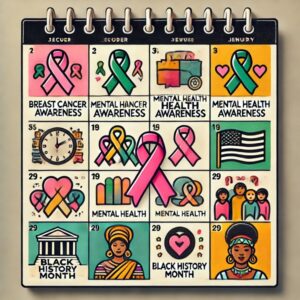
Frequently Asked Questions About Awareness Months
What Are Awareness Months?
Awareness months are designated periods, often a month long, dedicated to raising awareness about specific issues, causes, or conditions. These months aim to educate the public, advocate for change, and provide support to those affected. Awareness months can cover a wide range of topics, including health issues, social causes, and cultural heritage.
Why Are Awareness Months Important?
Awareness months play a crucial role in highlighting issues that may not receive enough attention otherwise. They provide a structured timeframe for concentrated efforts in education, fundraising, and advocacy. By dedicating an entire month to a cause, organizations and individuals can organize events, campaigns, and activities that effectively reach and engage the public.
How Are Awareness Months Established?
Awareness months are often established by organizations, advocacy groups, or government bodies. The process usually involves a combination of grassroots efforts, petitions, and legislative action. Some awareness months are internationally recognized, while others may be specific to certain countries or regions. For example, Breast Cancer Awareness Month in October is widely recognized across the globe.
What Are Some Common Awareness Months?
Several awareness months are observed annually, each focusing on different causes. Here are a few examples:
- January: Cervical Health Awareness Month
- February: Black History Month, American Heart Month
- March: Women’s History Month, Colorectal Cancer Awareness Month
- April: Autism Awareness Month, Stress Awareness Month
- May: Mental Health Awareness Month, Skin Cancer Awareness Month
- June: LGBTQ+ Pride Month, Alzheimer’s and Brain Awareness Month
- July: UV Safety Month, Minority Mental Health Awareness Month
- August: National Immunization Awareness Month, Breastfeeding Awareness Month
- September: Childhood Cancer Awareness Month, Suicide Prevention Month
- October: Breast Cancer Awareness Month, Domestic Violence Awareness Month
- November: Diabetes Awareness Month, Lung Cancer Awareness Month
- December: National Drunk and Drugged Driving Prevention Month
How Can You Participate in Awareness Months?
Participation in awareness months can take many forms. Here are some ways to get involved:
- Educate Yourself: Learn about the issue being highlighted and share your knowledge with others.
- Spread Awareness: Use social media, blogs, and other platforms to raise awareness about the cause.
- Support Organizations: Donate to or volunteer with organizations dedicated to the cause.
- Attend Events: Participate in events such as walks, fundraisers, and seminars.
- Advocate: Write to your local representatives to support policies and legislation related to the cause.
What Impact Do Awareness Months Have?
Awareness months have a significant impact on public perception and policy. They help in:
- Raising Awareness: Increasing knowledge and understanding about the issue.
- Fundraising: Generating funds for research, support, and advocacy efforts.
- Encouraging Screenings and Prevention: Promoting early detection and preventive measures.
- Fostering Community: Building a sense of solidarity and support among those affected.
- Influencing Policy: Driving legislative and policy changes to address the issue.
Can Individuals Create Their Own Awareness Months?
While creating an official awareness month may require significant effort and support from organizations and legislators, individuals can certainly start awareness campaigns. These grassroots efforts can be highly effective, especially with the power of social media. By rallying support and raising awareness on a smaller scale, individuals can contribute to larger movements and eventually inspire official recognition.
How Can Schools and Workplaces Participate?
Schools and workplaces can play a crucial role in supporting awareness months. They can:
- Organize Events: Host informational sessions, fundraisers, and activities related to the cause.
- Promote Education: Incorporate information about the cause into curricula or training programs.
- Encourage Participation: Motivate students and employees to get involved through volunteer opportunities and campaigns.
- Display Information: Use bulletin boards, newsletters, and social media to share facts and resources.
What Are the Challenges Faced by Awareness Months?
Despite their benefits, awareness months face several challenges:
- Oversaturation: With so many awareness months, it can be difficult for each cause to get the attention it deserves.
- Tokenism: There is a risk of awareness activities being superficial or performative rather than leading to real change.
- Funding: Not all causes receive the same level of financial support, leading to disparities in their impact.
Conclusion
Awareness months are vital for shining a light on important issues and mobilizing collective efforts towards change. By understanding their purpose and getting involved, individuals and communities can make a meaningful difference. Whether through education, advocacy, or support, participation in awareness months helps drive progress and fosters a more informed and compassionate society.














